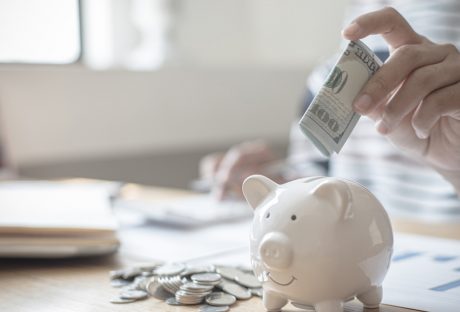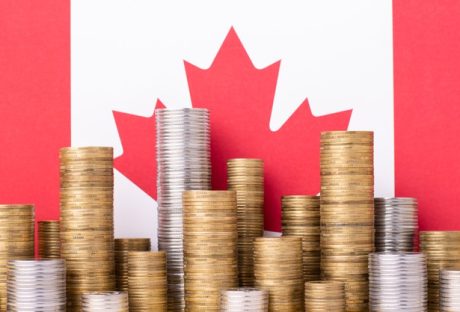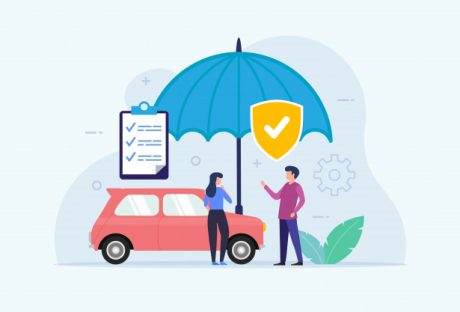Bitcoin has officially been introduced at the traditional stock exchange. The first country to make this significant move was Canada. Before that, the only way to buy and sell BTC was by using a digital currency stock exchange, which is still the most popular way to trade Bitcoin and other cryptocurrencies.
The Great White North officials authorized a Bitcoin fund that was immediately introduced to the stock market. This event will pave the way for many investors to access the popular cryptocurrency and try to make a profit with its help.
The Bitcoin index fund was proposed by a company called Purpose Investments.
The Toronto Stock Exchange approved the start of the fund on February 18. As announced by the spokesperson from the Ontario Securities Commission, the fund uses the acronym BTCC.
The role of the fund’s administrator belongs to a Canadian company called CIBC Mellon Global Securities Company. The sub-custodian is the Gemini Trust Company. There are no similar traded Bitcoin funds anywhere in the world. It means that Canadian stock traders could start a trend where many other stock exchanges will introduce a cryptocurrency-backed fund.
Purpose Investments issued an official press release declaring that the fund was the first in the world to be physically settled in BTC and not derivatives. It means investors will access cryptocurrencies conveniently without self-custody risks and all associated dangers that digital cryptocurrency wallets bring.
The main risk brought by digital wallets is the usage of keys. A private key is the only thing that allows you access to your cryptocurrencies. This key is like a password, but it’s irretrievable, meaning your Bitcoin storage will be lost forever if you forget the key.
For instance, if you lose your Facebook password, you can always send a request to change it. The platform, being a centralized entity, will grant you that request. Unfortunately, that option isn’t available when it comes to digital wallets, meaning a lost key is gone forever.
Many people don’t feel confident about this arrangement and believe handling your own keys brings a certain risk. That is why an exchange-traded fund seems like a better option at the moment.
In other words, being in charge of your own fortune requires having a high level of responsibility and keeping your private keys safe and secure.
Bitcoin Reaches New Heights:

When Bitcoin was introduced to the world in 2009, it was worth almost nothing. You could buy hundreds of Bitcoins for a couple of dollars. The first time that the cryptocurrency peaked was in December 2017, when the price reached almost $20K. After that, the price started going down, with many pessimists predicting the ultimate fall of BTC.
However, there was no reason to worry. After a somewhat quiet period in 2018, when the BTC rate reached as low as $3,500, a slight bump happened when the price increased to more than $10k in 2019.
Then, the Covid-19 pandemic started, and people started looking for a way to store their wealth. At that moment, Bitcoin turned out to be one of the most lucrative solutions.
Therefore, they joined a stock exchange cryptocurrency and started massively buying BTC. The price first reached around $30K, and it is currently being traded at about $45K. This was a reason good enough for many people to consider buying “digital gold.”
Another reason why this cryptocurrency increased in value was the fact that big companies started investing in it heavily. For example, Tesla invested approximately $1.5 billion in bitcoin, and many smaller investors followed its steps.
What About Other Cryptocurrencies?
So far, Bitcoin has been the most popular cryptocurrency, traveling the longest distance on the road to widespread adoption.
However, it’s definitely not the only crypto out there, as many other altcoins are pretenders to BTC’s trone. Some of them might even get a similar treatment by traditional stock exchanges. The most likely candidate for that is Ethereum, a cryptocurrency supporting the Ethereum platform.
Besides Ethereum, Bitcoin Cash is doing a pretty good job, as well as Tether, Binance Coin, Ripple, Litecoin, and more.
Final Thoughts:
The introduction of Bitcoin to the traditional stock exchange gives Canadian investors more room to access the cryptocurrency.
They’ll be the first ones to test how that works and whether one can make a profit by investing in the Bitcoin ETF. If all goes well, we could expect other exchanges to do the same.
All eyes are now on the Wall Street exchange, which is expected to copy the homework from the Canadian stock exchange. Will there be additional Bitcoin funds used by investors to trade on stock exchanges around the globe? At this moment, everything seems possible.
Read Also:
- Exciting Facts About Cryptocurrency And Crypto Wallets
- How to Buy Bitcoin From Norway
- HybridBlock: Why Binance Is Investing In Crypto-Fiat Trading
- Everything You Must Know About Bitcoin Circuit: Legal or Scam























